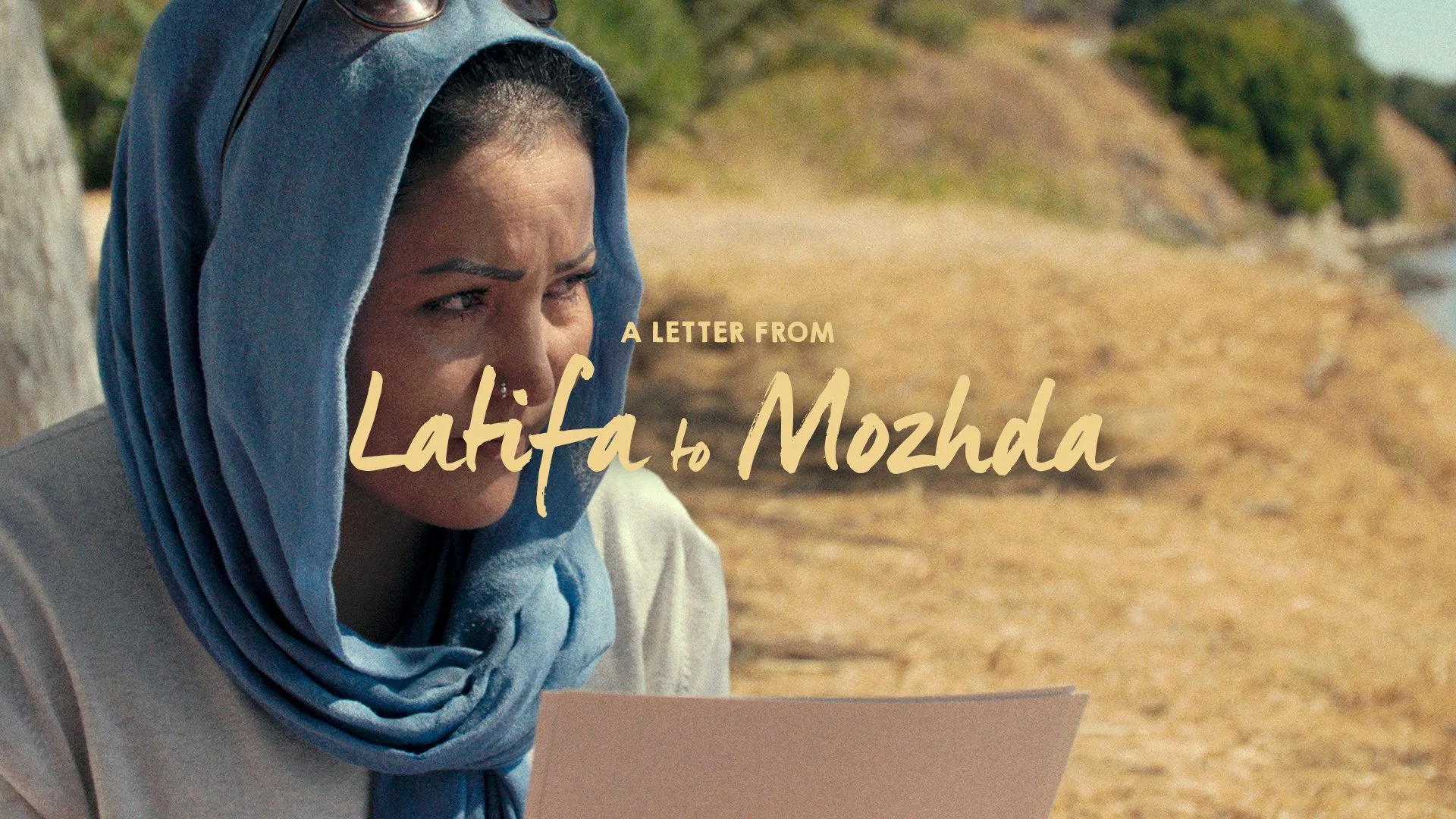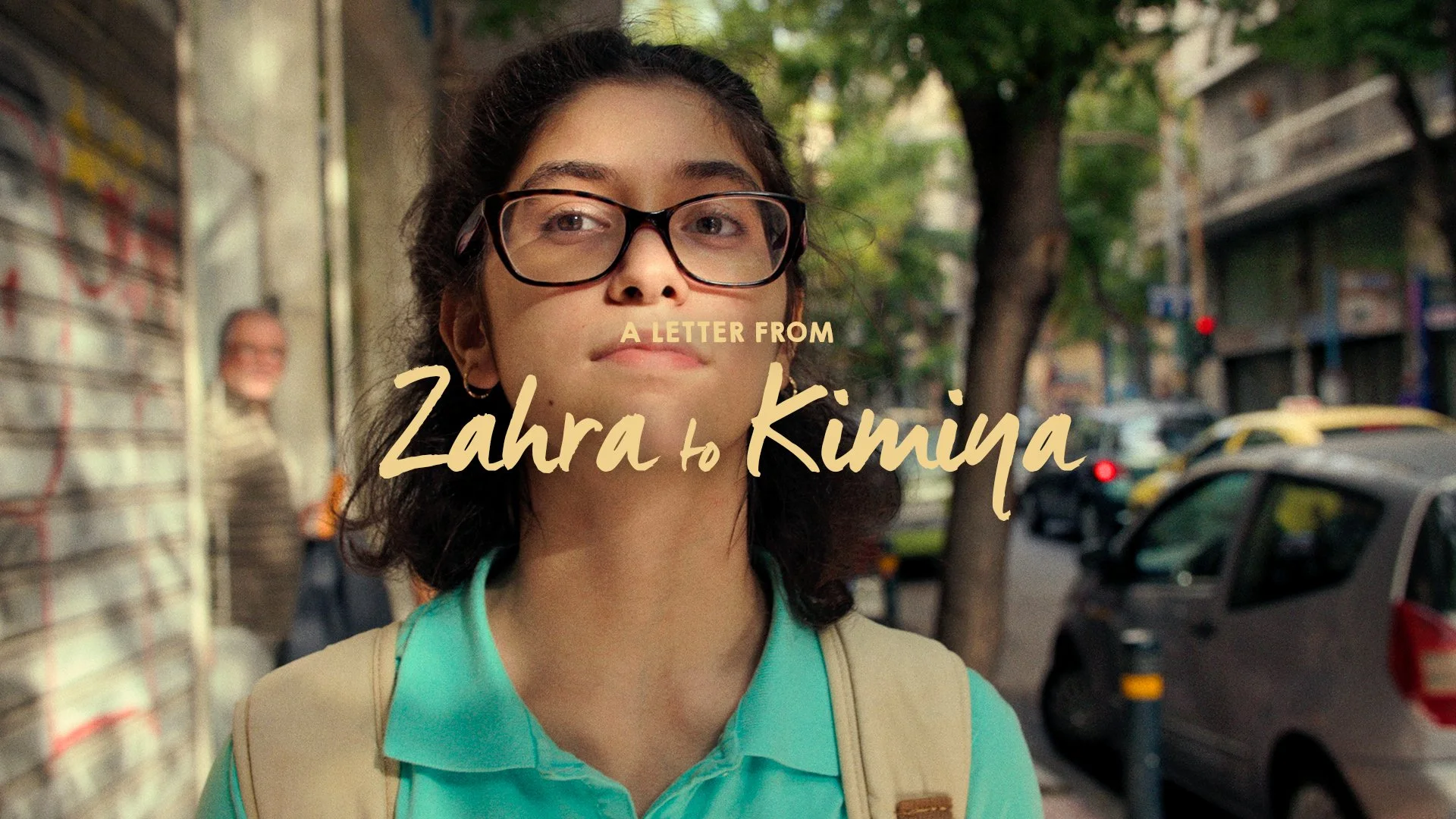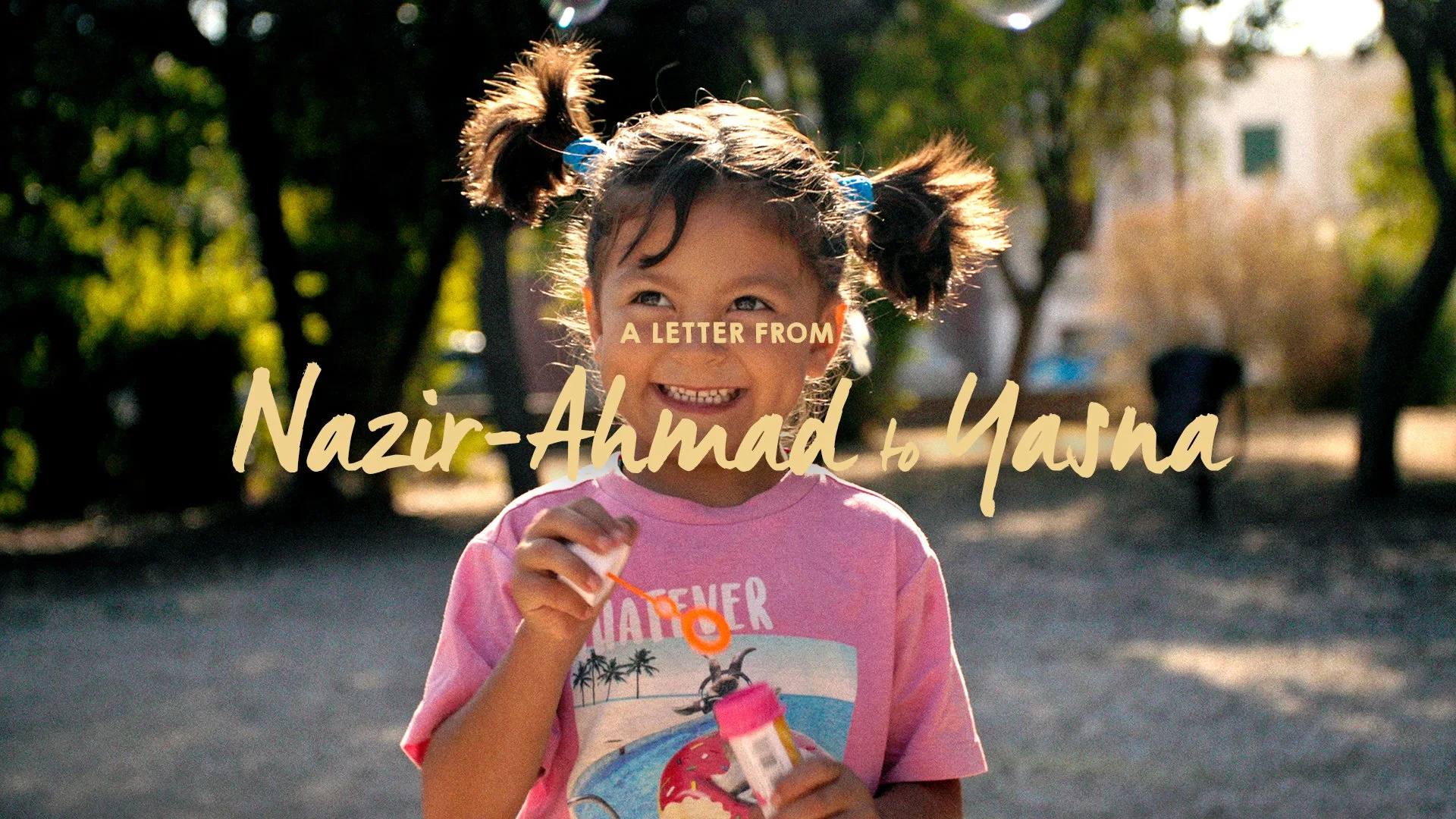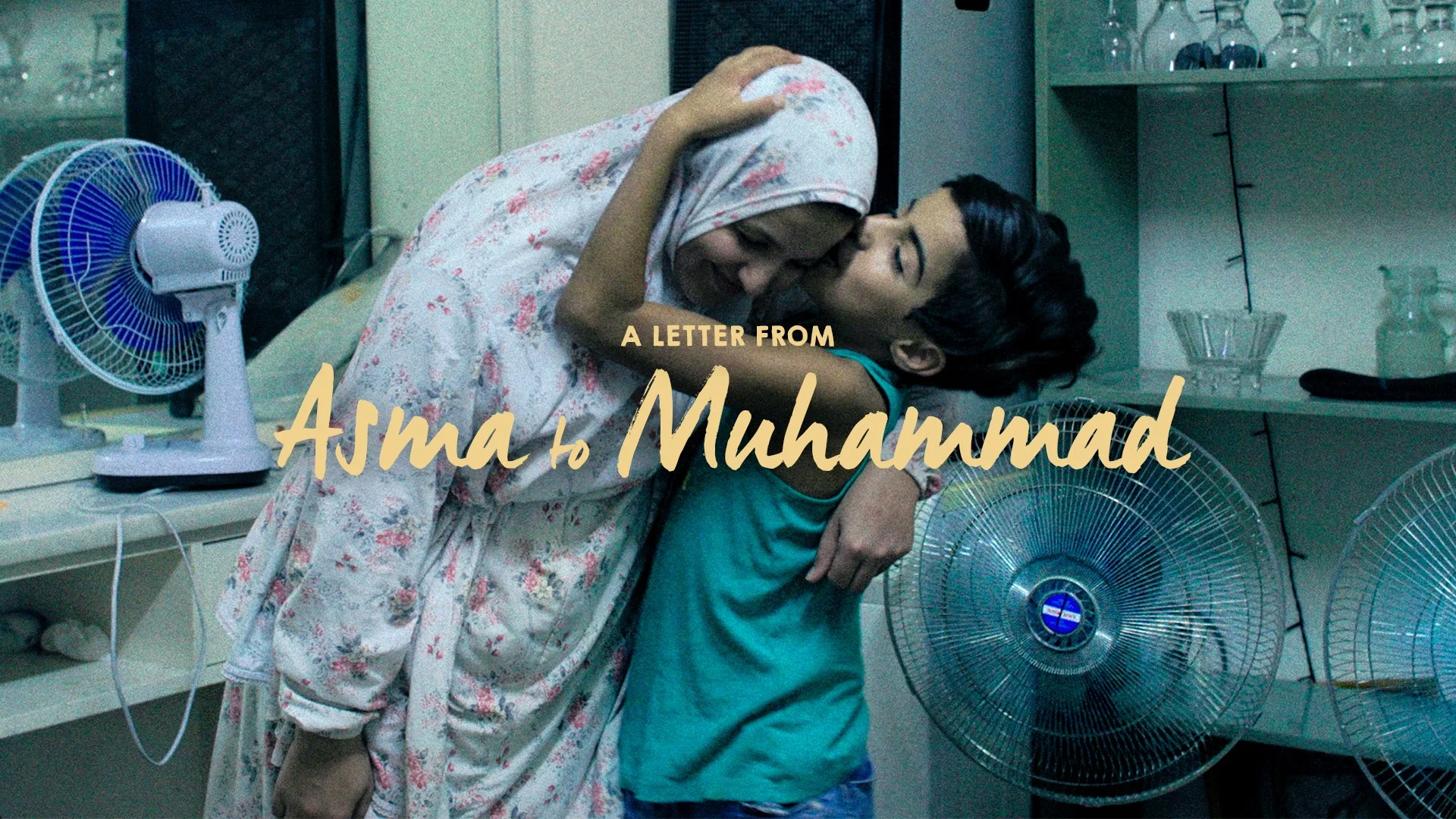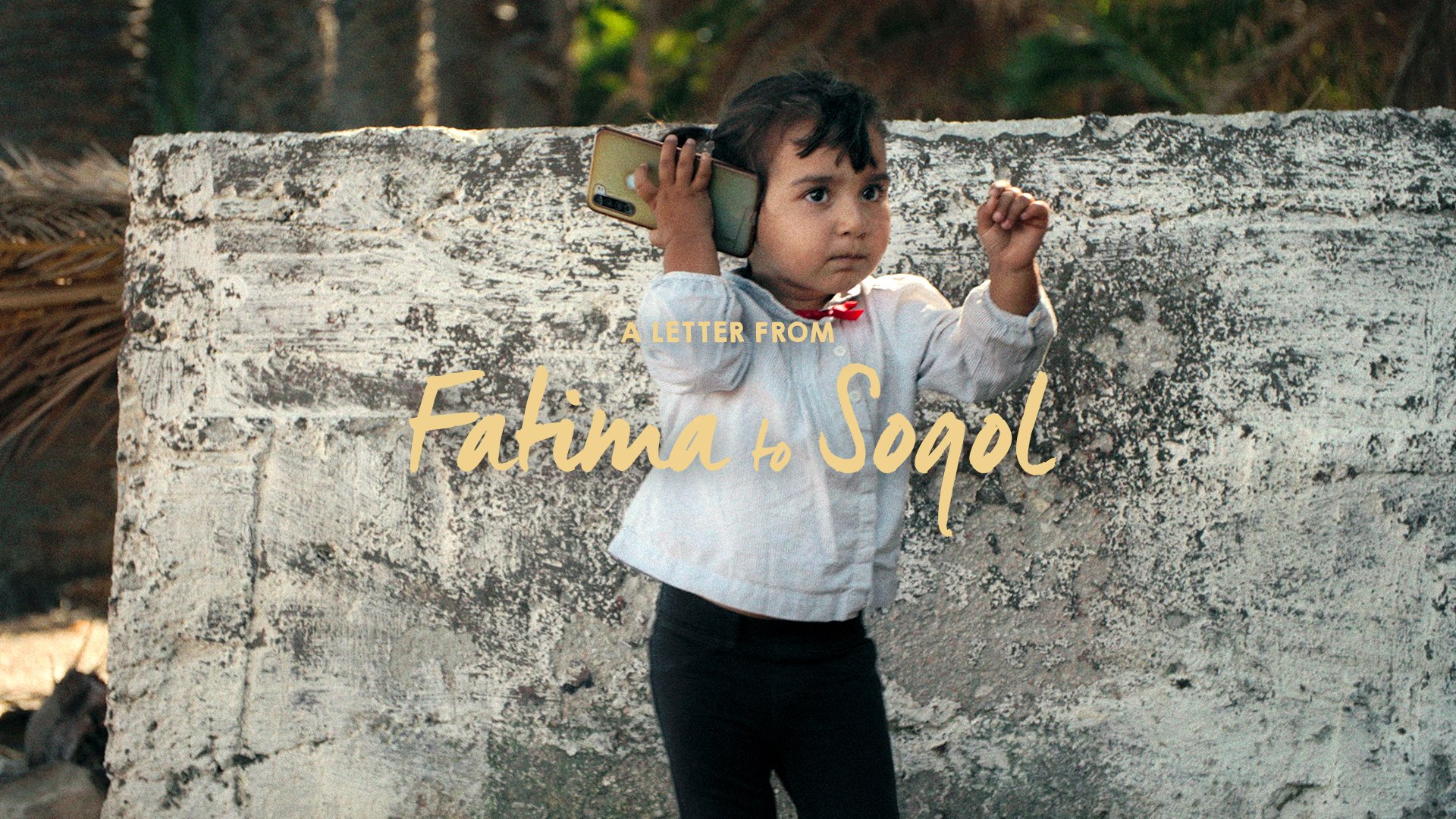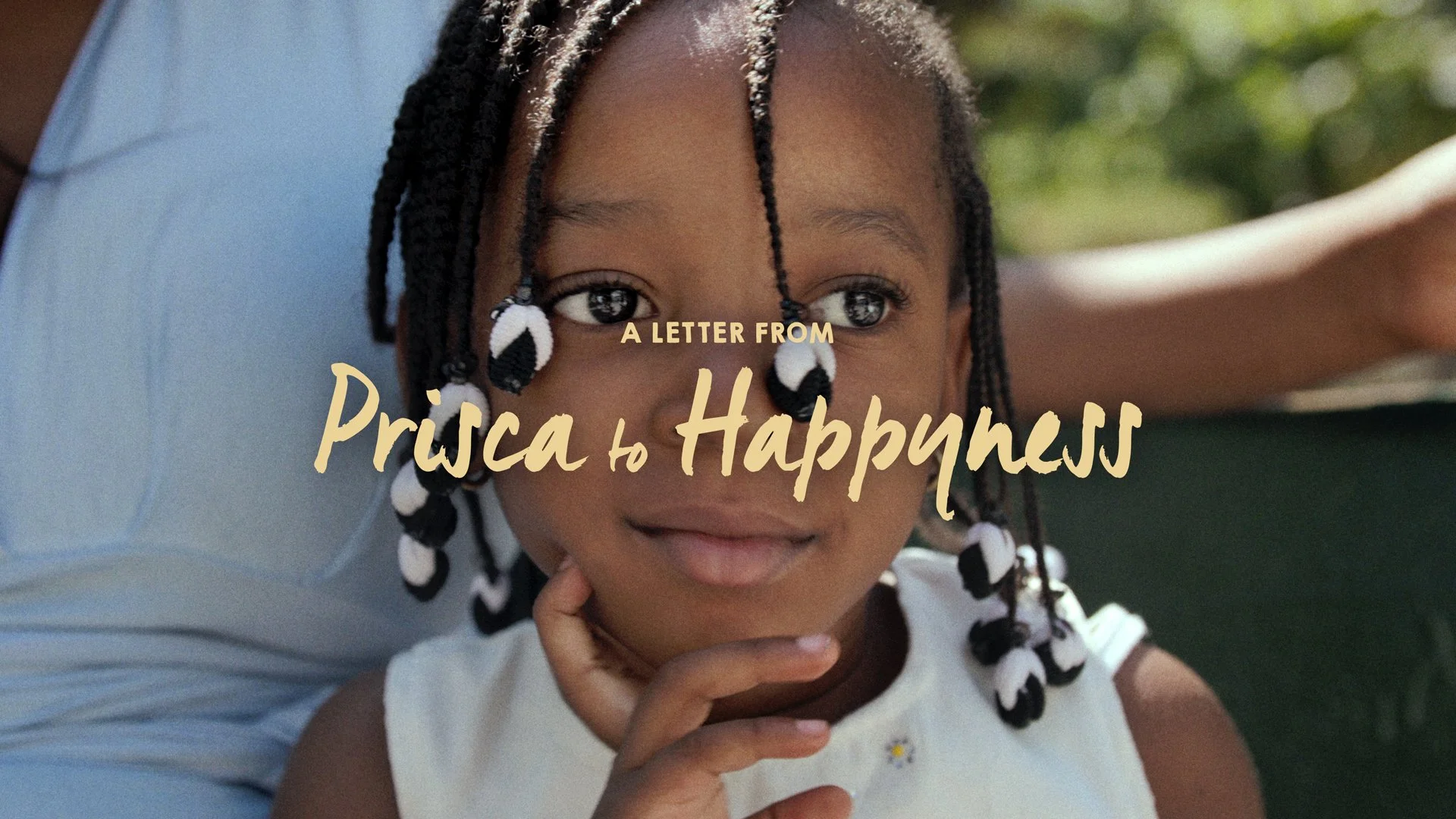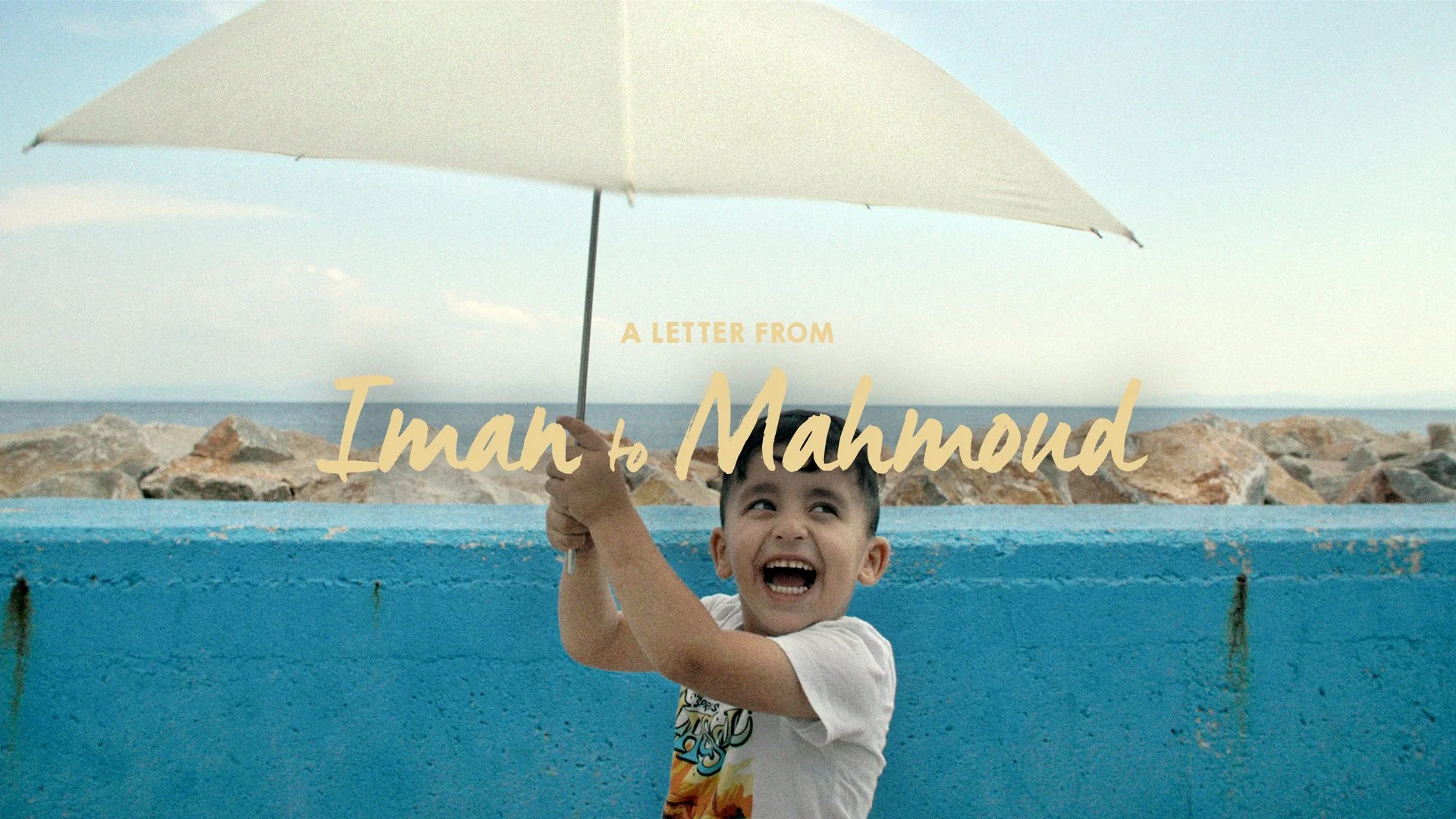
What do you tell your child when you are fleeing war and violence together?
At the moment, more than 100 million people are displaced worldwide, including millions of parents with their children. In ‘Children of the Labyrinth’, nine of these parents have written intimate letters to their child. All stranded in Greece, they recount their arduous journey and the helplessness they feel to be caught up in the European asylum policy, what they wish for their kid in the future, but most of all, how incredibly much they love them.
This project is created in close collaboration with the parents. Driven by every parent’s most universal desire - that of a better future for your child - they had no other way than to expose their vulnerable little ones to a life-threatening labyrinth of steel walls, violent ‘pushbacks’, human traffickers and ice cold or scorching hot tent camps. The letters offer a deep human insight into what that really feels like for a parent: “It has left deep scratches on our soul.”
Trailer (1:09 min.)
“We hope that when our children are older, our letters will help them to get a better understanding of what happened then.”
~ The parents
Watch the letters, portraits & films:
This project consists of nine handwritten letters from parents coming from Afghanistan, Cameroon, Iran, Syria, Congo and Iraq.
The letters are visualised in nine individual short films (4 - 7 mins each, 45 mins in total), and one combined short film (10 mins, at the bottom of this page) where all letters are interwoven into one letter. At the very bottom is a joint statement from the parents.
The music is composed especially for this project by Dutch pianist Joep Beving. Follow updates on this project via Instagram.
1. Latifa & Mozhda
Five years ago, English teacher Latifa and her family fled their home in Afghanistan after it was attacked by the Taliban. After a tough time in Iran and Turkey where, as Afghans, they risked being deported, they stepped on an inflatable boat to Greece in search for a safe future. But at the time of writing, they have been forced to live in Camp Moria for more than three years where - after four rejections - they have no choice but to start a fifth asylum application.
In her letter, Latifa writes to her first-born daughter Mozhda (pink cap) about the beautiful day eight years ago when she was born 'as white as snow and as soft as cotton.' Emotionally, she looks back on their fearful flight and how terribly scared they have been on the boat at sea. Having to watch her daughter grow up in the harsh conditions of the tent camp leave her feeling helpless as a mother. "My dearest, this is not the life you deserve."
6:17 min
2. Fabiola & Soan
After a tough childhood with two kidnappings (by militias), Fabiola flees - a few months pregnant - from Cameroon to Greece, where after a violent ‘pushback’ at the Aegean sea she arrives sick and exhausted on the Greek island of Samos. When the authorities transport her to Athens to give birth to her son Soan in a hospital, all her papers get lost. At the time of writing, she is living in a shelter in Athens.
In the letter to her son, Fabiola recounts to him the first weeks of her pregnancy, which was not her own choice. Even though life around her was inky black at that time, she instinctively felt she had to protect the ‘little innocent angel’ in her belly. She promises him that she will be both a mother and a father to him, one that any child would want to have. "Finally I have my companion for life."
5:42 min
3. Zahra & Kimiya
For the future of her daughter, Zahra decide to flee Iran together, where, as Afghan refugees, they have no prospects. But once arrived in Europe, they end up in a leaky tent in Camp Moria ‘where the mice run over their faces’ and are forced to wander the streets of Athens for months. At the time of writing, they are waiting in a tiny apartment (paid for by a French charitable family) for their Greek residence papers.
In her letter, Zahra recounts the very stressful and humiliating period when they wandered the streets of the Greek capital together with no money or shelter while Kimiya developed serious heart problems, and that no one would help them. She hopes her daughter can later realize her big dream - to become a doctor - and calls her ‘an amazing teacher God gave me.’ "In the sweet sound of your laughter, I feel hope."
4:02 min
4. Nazir-Ahmad & Yasna
After the Afghan motorcycle mechanic Nazir-Ahmad - who himself fled to Iran as a child with his parents - faces exclusion and discrimination all his life, he decides that the life of his young daughter Yasna will be a different one: a life wíth opportunities. He literally carries her from Iran to Europe, crossing the most difficult borders. But at the time of writing, they have been stranded in a tent camp in Greece for almost two years, trying to make a third asylum claim after two rejections.
In his letter, Nazir-Ahmad writes frankly about the deep guilt he experiences as a father about his daughter having to spend her young childhood in a camp ‘with bitterly cold winters and scorchingly hot summers,’ but that he continues to harbor a profound hope of being able to take her with him to a place where she will be free and can go to school. "Make your own decisions, my dear little girl, and don’t allow anyone to ever treat you with contempt. Be free."
4:21 min
5. Asma & Muhammad
After the Syrian war leaves deep wounds in the lives of Asma and her family, the family decides to flee to Europe via Turkey, where they endure a hellish time at Camp Moria and later on the streets of Athens. At the time of writing, they roam from one temporary house to another, whose rent is paid by foreign friends. Their asylum procedure is completely bogged down by lost asylum files with the Greek authorities.
In the letter to her oldest son Muhammad, Asma writes emotionally about the missile strike on their home in Syria in which he was seriously injured and his grandfather died. They were each other's greatest friends. She expresses hope that her son can go on to fulfill his dreams of becoming an astronaut, a soccer player or an engineer, and she honors him by saying she has never seen a boy more handsome than him. "I am so proud of you."
4:45 min
6. Fatima & Sogol
For hairdresser Fatima, the future of her two-year-old daughter Sogol was the reason for her flight from Iran, where she herself experienced so much discrimination and exclusion in her own childhood as an Afghan refugee. Her wish is for her child to grow up in a country where everyone has equal rights. But at the time of writing, they have been waiting in a tent camp for almost two years, with two rejections in their pocket.
In her letter, Fatima emotionally recounts how she cried her eyes out when she had to cross the Aegean sea with her tiny baby in a too-large orange life jacket, and how terrible she felt about having to expose her daughter to the terrible cold in the camp. "You shivered when I changed your diaper." She expresses the hope that they will celebrate her third birthday in a better and safer place than their tent.
6:09 min
7. Prisca & Happyness
When Prisca - after a tough childhood in an adoptive family in Kinshasa - begins to suspect that ‘people with a bad heart’ want to kill her newborn baby Happyness, she flees the Congo headlong and through detours ends up in Turkey and later in Greece. After a year in a refugee camp on Samos, she receives a temporary residence permit for Greece, but Happyness does not yet. At the time of writing, they are trying to rebuild their lives in Athens.
In the letter to her daughter, Prisca describes her birth as a moment when an angel arrives on earth, a ‘beautiful little Barbie doll’. She writes of their arduous flight together, of how cold it was and how wet, and of how she sang songs on the boat to Happyness who slept in her arms. "I can't write you everything...". She ends her letter by promising to protect her daughter forever. "All I can do is make you happy."
4:48 min
8. Gita & Najma
Four years ago, housewife Gita lives quite contentedly with her family in Karte-e-Naw, a 1950s middle-class neighborhood in the Afghan capital of Kabul, until her husband - a private driver by profession - receives serious threats from the Taliban. A hellish flight toward Turkey follows, where Gita receives harsh beatings from border guards on the Iranian-Turkish border. To get ahead of the danger of deportations, after a year in Turkey they sail a tiny boat to Greece.
In the loving letter to her daughter, Gita describes her as a very smart, kind and funny girl and hopes that one day her future dream - to become a police officer - will come true. She also recounts the confrontational day in the camp when the family unexpectedly received their second asylum rejection. It affected Najma so deeply that she cried out in tears: "Why can't we have a normal life?!" "It was so heartbreaking that our neighbors started crying too."
3:52 min
9. Iman & Mahmoud
When the danger and fighting get too close to their home in northern Syria, Iman and her husband Aziz - along with their baby Mahmoud - decide to flee their homeland. After a lightning-fast two-week journey via Turkey, they arrive in a dark night by inflatable boat on Lesbos, where, after a year and a half of waiting in camp Moria, their asylum application is approved. At the time of writing, they are waiting for their Greek residence papers.
In the letter to her son, Iman tells him about the terribly hard decision to go and leave their family and neighbors behind in Syria, 'but it was the only way to give you a better life.' A harsh time in the camp followed, during which Mahmoud became ill. She expresses the hope that later Mahmoud will forget everything that happened and that he will make lots of new friends. "My son, it was never my intention that we should be living like real refugees."
3:37 min
Combined Film
In this short film, all letters are interwoven into one letter.
9.47 min.
“No one leaves home unless home is the mouth of a shark”
Dear viewer,
We would very much like to thank you for viewing our letters.
In recent years, we and our children unwittingly found ourselves in a life-threatening and humiliating labyrinth of high steel walls, barbed wire, thugs, pushbacks, human traffickers, freezing cold or scorching hot tent camps and dragging asylum procedures. A world where only your passport determines what your rights are, and íf there are any.
Meanwhile, some of us are at a different place in the labyrinth, though most are still in uncertain procedures. Yet that does not make our letters any less relevant. For the first time in history, the number of displaced people worldwide has passed the milestone of 100 million and it continues to rise. Even today, thousands of parents are forced by violence, exclusion or disenfranchisement to make perhaps the most difficult decision of their lives: to flee your house and homeland, together with your most precious possession on your arm: your child.
Only we know what gruelling road awaits them. How the years of worry and uncertainty can drive you crazy. And how terrible the helplessness feels when you cannot give your child what it deserves. It has left deep scratches on our souls. With our letters, we hope that they - and therefore we - will be seen.
With love,
Latifa, Nazir-Ahmad, Fabiola, Iman, Zahra, Gita, Fatima, Asma and Prisca.



